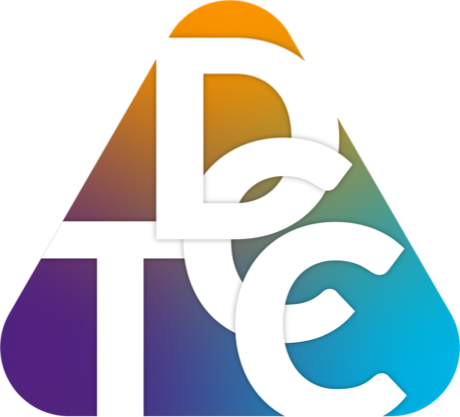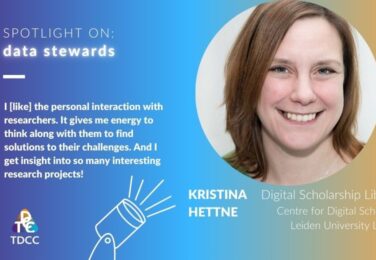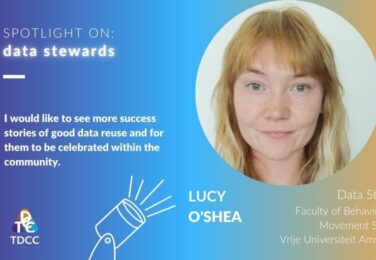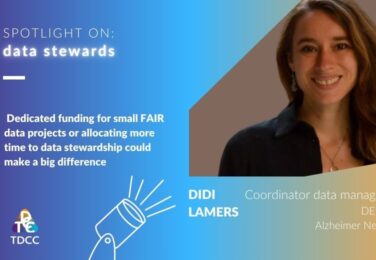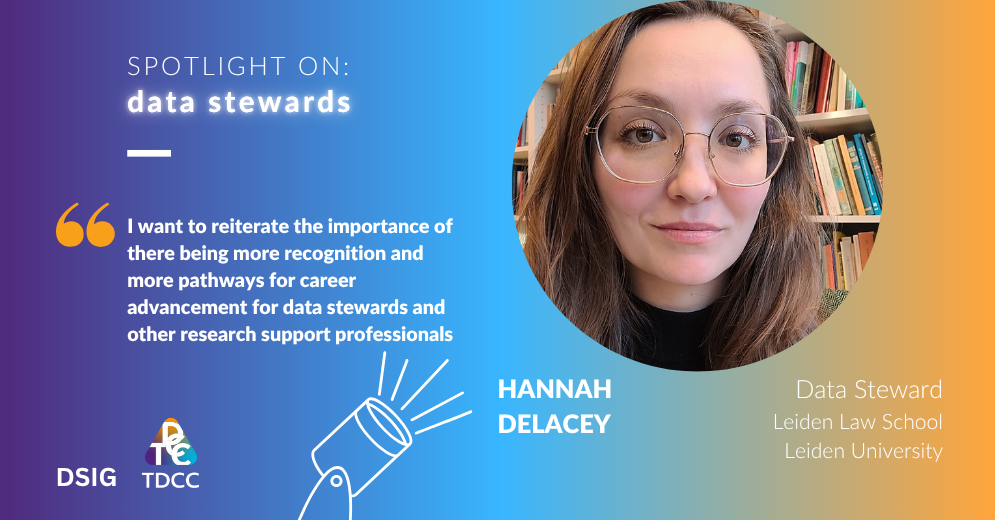
Spotlight on: Hannah DeLacey
Every other week, the Thematic DCCs and the Data Steward Interest Group (DSIG) put the spotlight on one research data steward working in the Netherlands to stimulate knowledge exchange and peer-to-peer learning.
What drew you towards the research data management field?
A few years ago, I worked as a guest researcher on a project that had a project data steward. Prior to this, I did not know that this job existed. The data steward played a crucial role by providing support to the team for various aspects of the project, such as helping plan the data management procedure, helping navigate the tools and infrastructure available at the university, and creating a virtual research environment. She also helped the research team think through the challenges that they could face while doing fieldwork and to create solutions to mitigate these issues. I was inspired by the impact that her work had on the research team and impressed by her diverse areas of expertise.
After this project, I started a PhD. I work with sensitive personal data. Because of this, I had to be extra careful collecting and protecting my data, and I had to do a lot of planning at the beginning of my project. What I previously learned from the project data steward helped me immensely during this phase of my research.
These experiences inspired me to pursue a career as a data steward. I saw that it would allow me to bring together a lot of my strengths, give me opportunities for ongoing learning and growth, and to help others—which I find to be one of the most fulfilling aspects of work.
What is an activity/task of your role that you find yourself looking forward to?
Twice a year, I give a training on research data management to PhD candidates at the law school. In this training, PhD candidates learn about data management, FAIR data, privacy, open science, and qualitative and quantitative research.
For many of the PhD candidates, this is the first time that they have learned about data management. I really enjoy introducing them to the topic and giving them tailored advice for their research projects. I remember how confusing this all was for me when I started my PhD, and I hope that I can make the process a bit easier for them. I also love the opportunity to meet the new researchers and learn about their diverse areas of research—there are so many interesting research projects at the law school!
What is something unexpected that you can offer help with, if a colleague reaches out to you?
Because of my position as the data steward at Leiden Law School, I am connected to a large network of research support staff. I am a great person to contact if you have a question and you are not sure who can answer it for you.
I also love knitting and crocheting-- I am always happy to talk to people about their projects and help if I can!
What do you think your community of research data professionals is missing?
Although these issues have already been discussed extensively, I want to reiterate the importance of there being more recognition and more pathways for career advancement for data stewards and other research support professionals.
What is a topic you would want to collaborate on with others?
I would love to work with other data stewards from law schools to make practical guidelines for researchers doing doctrinal research and empirical research. There is a lot of information that is available, but I think it would be great to create more tailored information for the researchers in this field.
Could you point us to a resource, learning platform, tool or similar which you find useful or inspirational?
I have been reading a lot of work from Rebecca Campbell and her co-authors about the challenges of open science and qualitative research, including de-identifying and sharing sensitive interview data. I think that her work highlights a lot of the tension between recommendations about open science and how it is actually performed by qualitative researchers, including the challenges of deidentifying data, the time that deidentification takes, and the risk of (re-)traumatization of researchers working over a long period of time with data about traumatic events or experiences.
For example, see:
Campbell, R., Goodman-Williams, R., & Javorka, M. (2019). A trauma-informed approach to sexual violence research ethics and open science. Journal of Interpersonal Violence. Vol. 34. DOI: 10.1177/0886260519871530
Campbell, R., Goodman-Williams, R., Javorka, M., Engleton, J., & Gregory, K. (2022). Understanding Sexual Assault Survivors’ Perspectives on Archiving Qualitative Data: Implications for Feminist Approaches to Open Science. Psychology of Women Quarterly. Vol. 47. No. 1. DOI: 10.1177/03616843221131546
Campbell, R., Javorka., M, Engleton, J., Fishwick, K., Gregory, K., & Goodman-Williams, R. (2023). Open-Science Guidance for Qualitative Research: An Empirically Validated Approach for De-Identifying Sensitive Narrative Data. Advances in Methods and Practices in Psychological Science. Vol. 6. No. 4. DOI: 10.1177/25152459231205832
Get in touch with Hannah via the staff page of Leiden University
Do you want to read other interviews published in the Spotlight on series? Visit the series' page.
Are you a data steward or data professional who wants to be featured in one of the future editions? Fill out this form.
